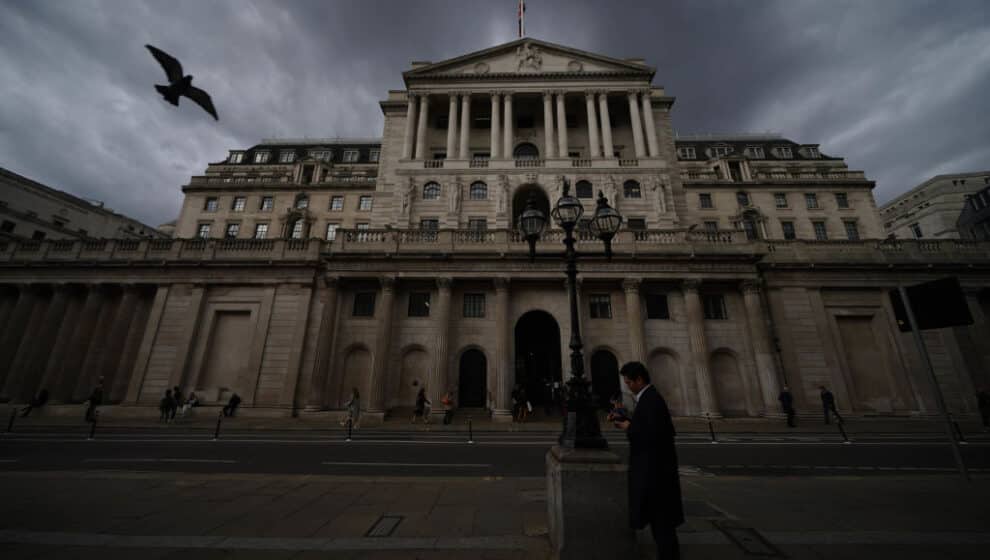The Bank of England was forced to step in to calm its gilt markets as a mass sell-off.
Key Details
- The Bank of England stepped into the bond, or “gilt”, market on Wednesday to calm the market and prevent a potential crash.
- The crash follows British finance minister Kwasi Kwarteng’s “mini-budget,” which introduced new tax cuts and spending measures. The pound reacted by plunging 5%.
- “[He] doubtless expected praise for his fiscal statement on September 23. Instead, he was met with panic. After announcing the biggest package of tax cuts in half a century, sterling cratered,” says The Economist.
- “The Bank of England stepped into Britain’s bond market on Wednesday to stem a market rout, pledging to buy 65 billion pounds ($69.4 billion) of long-dated gilts after a government fiscal statement triggered the biggest sell-off in decades,” says Reuters.
- “With the fallout from Prime Minister Liz Truss’s tax cuts still ripping through U.K. asset prices, the central bank had been warned that collateral calls on Wednesday afternoon could force investors to dump government bonds,” says Bloomberg.
Why it’s important
The Bank of England says its intervention stopped a potential crisis that would’ve further harmed financial stability or damaged the country’s economy.
“The BOE decided to intervene to get ahead of a potential crisis that could have hit within hours. It was concerning collateral requirements on liability-driven investment strategies, such as those at pension funds, would have turned many into forced sellers of long-dated gilts,” says Bloomberg.
“The bank’s Financial Policy Committee on Wednesday acknowledged the dysfunction in the gilt market posed a material risk to the country’s financial stability and opted to take immediate action,” says CNBC.
“Were dysfunction in this market to continue or worsen, there would be a material risk to U.K. financial stability. This would lead to an unwarranted tightening of financing conditions and a reduction of the flow of credit to the real economy,” says the Bank of England.
Notable quote
“The panic selling you are now seeing that is leading to the plunge of U.K. bonds, currency, and financial assets is due to the recognition that the big supply of debt that will have to be sold by the government is much too much for the demand. That makes people want to get out of the debt and currency. I can’t understand how those who were behind this move didn’t understand that. It suggests incompetence. Mechanistically, the U.K. government is operating like the government of an emerging country,” says Bridgewater Associates founder Ray Dalio.
Backing up a bit
As we previously reported, the United Kingdom’s economy is currently struggling under the weight of inflation and the energy crisis. The Bank of England responded to ongoing crises with a 50-basis-point hike last Thursday, while the government has attempted to Implement massive tax breaks and incentives in a bid to increase economic growth.
